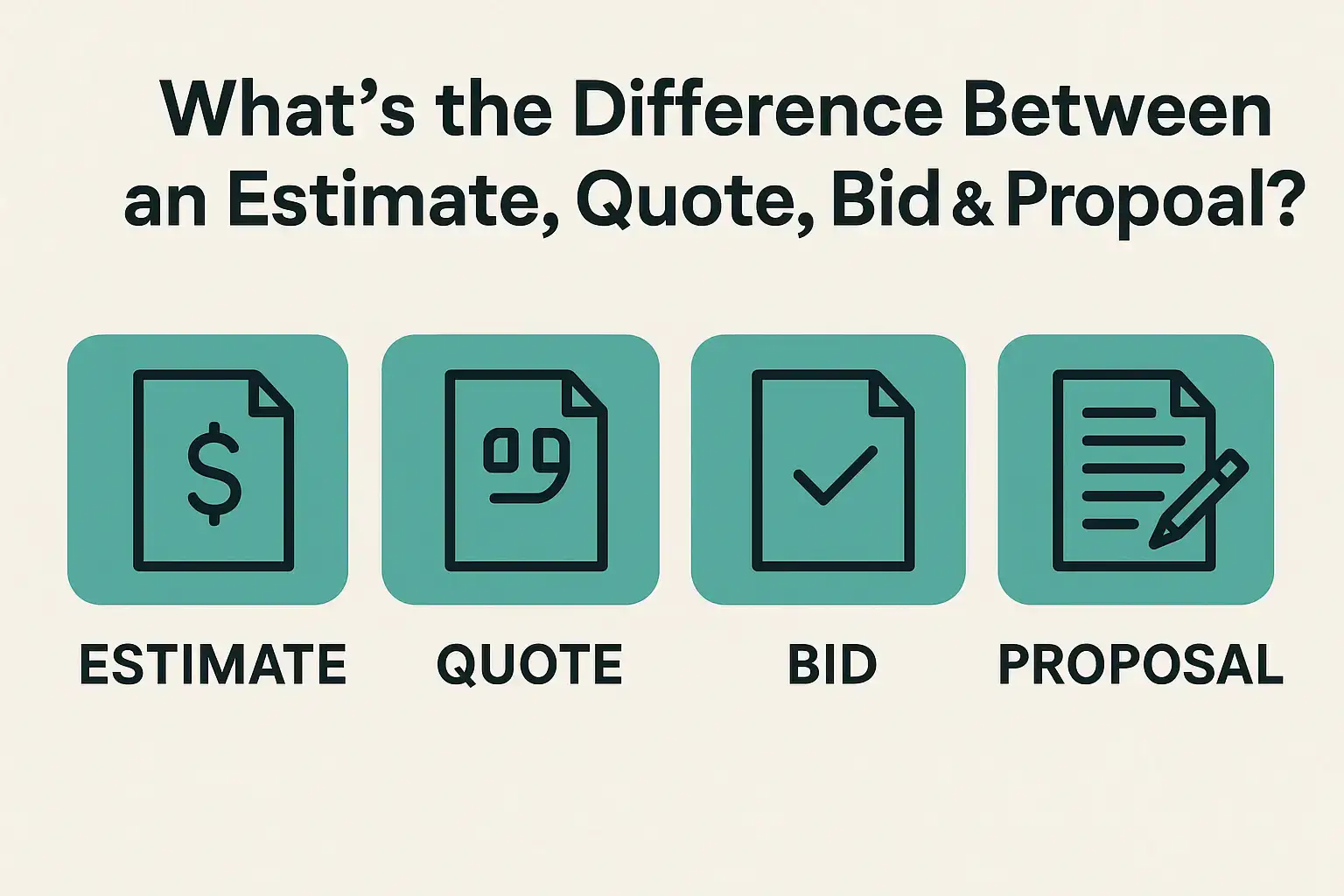Most of the time, Freshers and inexperienced contractors are confused between the concepts of an estimate, quote, bid & proposal. Well, these four terms are different and serve distinct purposes. So, it is important to understand these terms properly before getting yourself involved in this professional field.
However, if we sum these four terms in a single sentence to show their importance, then estimate, quote, bid & proposal are linked together to execute a successful construction project by preventing rework and over budgeting. Professional construction estimating services are delivered by following the sequential steps. The most important thing is “accuracy,” which can never be compromised. Otherwise, the contractors will lose profitable contracts.
DIVE IN TO EXPLORE THE DIFFERENCE BETWEEN AN ESTIMATE, QUOTE, BID, & PROPOSAL TO UNDERSTAND EVERY TERM CAREFULLY!
The Estimate is the Starting Point!
Basically, an evaluation of what the construction project might cost to complete. However, consider it in the first step in the pricing workflow, which is also known as the preliminary estimate.
Let us show you the most important things about an estimate:
- Estimates are not legally binding commitments
- Usually expressed as ranges (e.g., “$5,000-$7,000”)
- Quick to produce: Often provided within hours or days
- Free: Typically offered at no cost to the potential client
- Preliminary: Based on limited information about the project scope
When to Use Estimates
- Initial client inquiries about potential projects
- For budget planning purposes
- Feasibility assessments
- Screening potential projects before investing time in detailed proposals
Example:
According to your project plans and ideas, it will cost you between $9000-$13,000. Plus, it will take 6 to 7 weeks to execute your project.
Quote: The Price Promise
A quote is provided or offered by a reliable construction estimating company according to the project specifications and plans. However, it is stronger than an estimate and provides the best price for a defined period.
- Binding: Usually legally binding once accepted
- All the pricing must be exact in dollar amounts.
- Clear description of what’s included and excluded
- The time limit must be given
- Professional format: Often presented in formal documentation
When to Use Quotes:
- When the project scope is well-defined
- For standardized services or products
- When clients need exact pricing for budget approval
- For competitive pricing situations
Example:
If a commercial Office Build-Out is 2,500 sq ft, then it includes framing, drywall, electrical, HVAC, flooring, lighting, and basic finishes.
Bid: The Competitive Response
A bid is the final offer submitted in response to a specific request made by clients. However, bids are very common in securing profitable contracts in the construction sector.
- Competitive: Submitted alongside other providers’ bids
- Formal process: Follows specific submission requirements
- Detailed breakdown: Often includes itemized pricing
- Contractual: Legally binding when accepted
- Must follow request guidelines
When to Use Bids:
- Always respond to formal RFPs or RFQs
- Government contract opportunities
- Large corporate projects with competitive selection processes
- Construction and infrastructure projects
Example:
A Professional construction estimating company submits a comprehensive bid, including precise countings of materials, labor, and other essentials.
Proposal: The Complete Solution
The next one is a proposal, which is a complete document consisting of the best methods to cut costs and prevent delays. However, a reliable and competitive proposal includes:
- A complete summary of the solution and key benefits
- Review of the client’s needs comprehension
- Methodology: Detailed approach and process
- Timeline: Project phases and milestones
- Team: Qualifications and experience of key personnel
- Pricing: Detailed cost breakdown
- Terms: Contract terms and conditions
- Next Steps: Clear call to action
When to Use Proposals:
- Complex, high-value projects
- New client relationships require trust-building
- Competitive situations where differentiation is crucial
- Consulting and professional services
- Long-term partnership opportunities
Best Practices for Each Format
For Estimates:
- Clearly label as “estimate,” not “quote.”
- Provide ranges rather than exact figures
- Include major assumptions
- Set expectations about next steps
For Quotes:
- Specify the exact scope and deliverables
- Include terms and conditions
- Set expiration dates
- Make the acceptance process clear
For Bids:
- Follow all RFP requirements precisely
- Include required certifications and documentation
- Submit before deadlines
- Maintain professional formatting
For Proposals:
- Invest proper time in understanding the needs of the clients
- Do not only focus on the project features
- Your document must be easy to understand
Final Thoughts!
In short, the differences between estimates, quotes, bids, & proposals need to be understood properly. It is important, especially for an inexperienced contractor, investor, or cost estimator. It is helpful when you need to win more business or want to achieve precise quotes. However, by using advanced tools strategically, you can enhance the workflows and increase your success rates!

